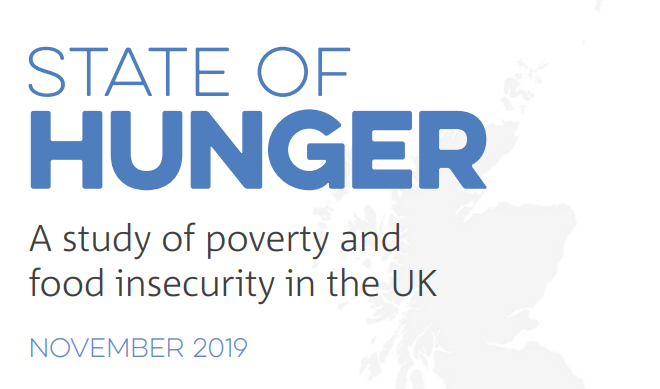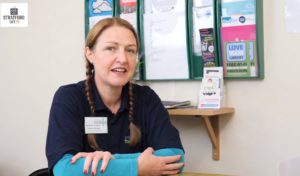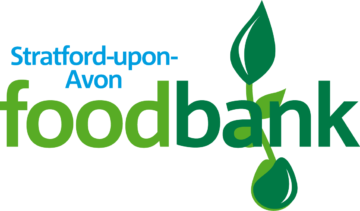
Stratford upon Avon Foodbank has revealed shocking figures of increasing demand over the last five years. In its recent ‘State of Hunger’ report foodbank network the Trussell Trust reported a 73% increase in demand over 5 years, but in Stratford that figure is much higher.
The town’s Foodbank reports that demand for their services has grown by over 100% in the last 5 years. The charity says that more people than ever are being forced to their doors simply because they do not have enough money to cover the basics.
Foodbank Manager Marion Homer said,
 “ This is not a growth figure we are proud of. We knew demand was growing year on year but, until now, we hadn’t compared current demand to that of 5 years ago. Even worse, is what is revealed when you look at the numbers of parcels being distributed to children and families. Parcels given for children has increased by a staggering 244% over 5 years, and the numbers of single parent families in Stratford in receipt of a foodbank voucher has grown by 353% in the last 5 years.
“ This is not a growth figure we are proud of. We knew demand was growing year on year but, until now, we hadn’t compared current demand to that of 5 years ago. Even worse, is what is revealed when you look at the numbers of parcels being distributed to children and families. Parcels given for children has increased by a staggering 244% over 5 years, and the numbers of single parent families in Stratford in receipt of a foodbank voucher has grown by 353% in the last 5 years.
“It’s often suggested to me, that the rise in food parcel need is because foodbanks have a higher profile and because more foodbanks have opened up in the last few years. The State of Hunger report rejects this. It confirms, through robust statistical and qualitative research, what our volunteers hear all the time – which is demand reflects real need, and this need is associated with the entrenchment of the welfare state which has been introduced under the banner of ‘welfare reform’ and ‘austerity’. Our benefits system is supposed to protect us from being swept into poverty, but the main reasons people need emergency food are because benefits are not covering the cost of living, combined with delays and changes to benefits payments.
“Stratford is not exempt from this situation. The fact that our town is showing an above average increase appears to be linked to problems surrounding universal credit. We have had UC in our area longer than many other parts of the country.”
What should the next Government do?
As part of the Trussell Trust network Stratford’s Foodbank points out that the forthcoming election provides a real opportunity to make things better for the poorest in our community. The Foodbank suggests that people ask the next government to do the following.
- End the five week wait for Universal Credit
- Ensure benefit payments cover the cost of living
- Invest in local emergency support for people in crisis
Marion concludes;
“We don’t think it’s right that our Foodbank exists at all. We have a team of wonderful volunteers and many, many generous supporters and donors– and without them we couldn’t do what we do. But how can it be right that volunteers are left to pick up the pieces of a broken welfare system? Hunger isn’t about food it’s about people not having the money for basics – and that’s happening in our town right now.”
For those wishing to read more about the State of Hunger report click here
Key Data from the State of Hunger Report
Whilst the following data is taken from the State of Hunger report, which is a national study, these factors are likely to true for the town of Stratford upon Avon too: and shows why our Foodbank has seen a rise in need of over 100% in the last 5 years.
- On average foodbank clients had just £50 a week income after housing costs; leaving them unable to afford the absolute essentials that we all need to eat, stay warm, dry and keep clean
- 94% were facing destitution
- 14% of households had someone in employment
- 20% reported no income at all in the previous month
- 75% had at least one health issue
- 54% lived in household affected by a mental health problem
- Most had a household income that is about the same as their hosing costs
- Most were facing long-term crisis
- Two thirds reported issues with the benefit system e.g.
- A reduction in the value of benefit payments (there has been a benefit freeze since April 2016)
- Being turned down for a disability benefit
- Delays in benefit payments
- 40% of users were having money taken off benefits to repay debts, with the vast majority repaying the DWP
- Most users had had a least one challenging life experience causing them difficulties for them to earn money, engage with the welfare system or increasing their expenses



